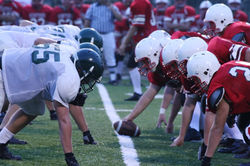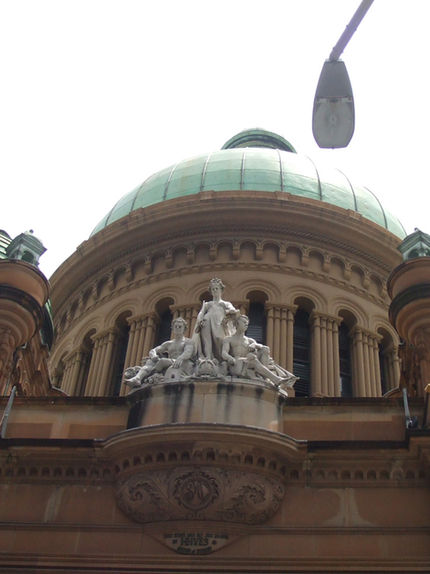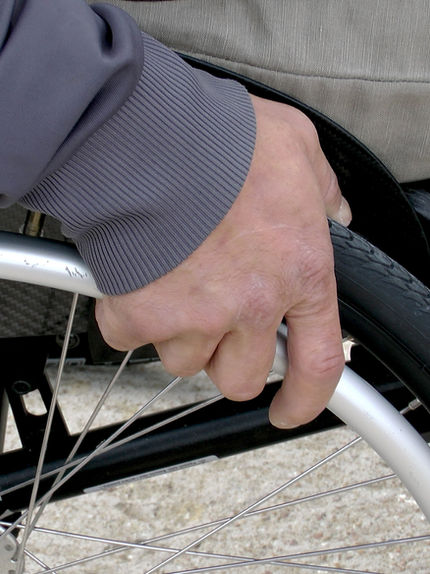SIMON FRASER UNIVERSITY
McMaster University is located in Hamilton, and comprises 57 buildings, 122 programs, and over 21 500 students [1]. It was first established in the year 1887 and is split into six different academic facilities: Degroote School of Business, Engineering, Health Sciences, Humanities, Social Sciences, and Science [2] . They’re known as the McMaster Marauders with their mascot named “Mac the Marauder.” The institution is home to over 300 student organizations and clubs, however, they do not recognize any fraternities or sororities [2]. Their main academic policy is known as the “McMaster Model,” which focuses on a student-centred, problem-based, interdisciplinary approach to learning which has been used since the 1960s [2]. Only 3700 students live in twelve on-campus residences with a range of building sizes and dormitory styles [1]. Finally, McMaster University is a member of a group of research intensive Canadian universities known as the U15 [2].
 |  |
|---|---|
 |  |
 |  |
 |  |
 |  |
 |  Public Speaker |
 Bald Eagle |
|---|
SIMON FRASER UNIVERSITY
 |  |
|---|---|
 |  |
 |  |
 |  |
 |  |
 |  Public Speaker |
McMaster University is located in Hamilton, and comprises 57 buildings, 122 programs, and over 21 500 students [1]. It was first established in the year 1887 and is split into six different academic facilities: Degroote School of Business, Engineering, Health Sciences, Humanities, Social Sciences, and Science [2] . They’re known as the McMaster Marauders with their mascot named “Mac the Marauder.” The institution is home to over 300 student organizations and clubs, however, they do not recognize any fraternities or sororities [2]. Their main academic policy is known as the “McMaster Model,” which focuses on a student-centred, problem-based, interdisciplinary approach to learning which has been used since the 1960s [2]. Only 3700 students live in twelve on-campus residences with a range of building sizes and dormitory styles [1]. Finally, McMaster University is a member of a group of research intensive Canadian universities known as the U15 [2].
 Bald Eagle |
|---|
Check out McMaster's official socials...
RA
NK
IN
GS
#
72
72
IN THE WORLD
#
4
4
IN CANADA
 |  |
|---|---|
 |  |
 |  |
 |
According to the 2020 Times Higher Education World University Rankings
Check out McMaster's official socials...
 |  |
|---|---|
 |  |
 |  |
 |
RA
NK
IN
GS
#
72
72
IN THE WORLD
#
4
4
IN CANADA
According to the 2020 Times Higher Education World University Rankings
UNIVERSITY OF BRITISH COLUMBIA
UBC, or the University of British Columbia, has two campuses stationed in British Columbia; one in Vancouver, and one in Okanagan. Rooted since 1906, UBC is home to 58,000 students, and offers 199 programs [1]. UBC has 12 faculties at its Vancouver campus, and 7 at its Okanagan campus [2]. Both campuses partake in Greek life, having several fraternities and sororities on each [2]. UBC has almost 350 clubs, like student councils, and sports clubs [2]. The Vancouver campus opened a new student union building in 2015, and is a place where many students go to study, or even relax because it has almost a dozen restaurants and cafés located inside. Some iconic Canadian figures such as David Suzuki, influential broadcaster, and environmentalist, and Kim Campbell, 19th, and first female Prime Minister of Canada, attended UBC [2]. Finally, the University of British Columbia is a member of a group of research intensive Canadian universities known as the U15 [2].
 |  |
|---|---|
 |  |
 |  |
 |  |
 |  |
 |  Public Speaker |
 |  |
|---|---|
 |  |
 |  |
 |
 Bald Eagle |
|---|
Check out UBC's official socials...
RA
NK
IN
GS
#
34
34
IN THE WORLD
#
2
2
IN CANADA
According to the 2020 Times Higher Education World University Rankings
For more information, check out the official UBC links below...

QUESTIONS
For a UBC Behavioural Neuroscience Student...
JUICY
4
What is some advice you would give students applying to your program?
When applying to the Behavioral Neuroscience Program, I would encourage all students to keep an open mind! It is very easy to become hyper-focused on one particular interest and pursue it alone at university, but it is important to remember that there might be a lot more that you are not familiar with that might still catch your attention! I was very convinced in my first year that I would be interested exclusively in neuroendocrinology, but over time I discovered that I was drawn to the intersection between neuroscience and the law from my interest in social psychology and cultural psychology courses. This newfound interest has led me to fascinating research opportunities that I potentially would not have had if I had stuck only to interests I was already aware of. So try your best to get a sense of everything that is possible with the degree and don't box yourself up into one specialization too quickly! I would also recommend thoroughly researching your courses before registering for them. The UBC academic calendar (http://www.calendar.ubc.ca/vancouver/index.cfm?tree=12,215,410,436) does a good job of laying out all the courses you can potentially take to complete your degree but make sure you go beyond that to identify professors you would like to take the course with and how grade distributions have been in the past. Useful websites to help you with include RateMyProfessor (https://www.ratemyprofessors.com/campusRatings.jsp?sid=1413) and UBC PAIR for grade distributions (http://pair.ubc.ca/student-performance/grades-distribution/)
2
How would you describe the workload and work-life balance?
The workload in my program is definitely taxing, as is the case for any science degree. However, few courses have weekly homework assignments and regular submissions, as might be the case with some Biology and Chemistry courses. The neuroscience courses are more specifically structured around readings (scientific papers, journal articles and even excerpts from papers published in other academic disciplines). These can be long and often time-consuming to complete. Most neuroscience courses are structured only around midterms and finals, with few other graded components although some may require writing an essay or designing a study. This is definitely a bonus, given that you don't have many other things competing with study time during a regular school week. Most students are even able to find time to work part-time or hold research positions at labs while they are pursuing their degree! Workload also varies by academic year, with 2nd year in the program being the most stressful because of the various pre-requirements and required courses! Most students generally take between 5-6 courses in a term in 2nd year, and these courses include second year Biology and organic chemistry courses, which have weekly assignments and regular homework. 2nd year can be the most difficult to juggle, especially since it is the first year in the Neuroscience program and students take core Neuroscience courses for the first time. These Neuroscience courses are quite different than what anyone is used to in high school or even first year, which means that there is a steep learning curve that can be time-consuming. However, 3rd year onwards can be a lot more relaxing, as there are fewer required courses and close to 0 non-Neuroscience courses. 3rd year onwards you also get to start catering your degree towards one of the three main branches that I had mentioned before, and these usually tend to be easier to get through as you end up picking courses you are passionate about. You hence don't mind putting in the effort for them! Regardless of how you plan out your degree however, ensure that you are listing out your commitments for the year (whether it be for work, clubs, volunteering, or anything else) and ensuring that you're not overloading yourself! It can be easy to underestimate just how quickly some of these courses pick up :)
1
Why did you choose your program? What makes it unique to you?
I joined UBC with the intention of going to either law school or grad school at the end of my 4 years, but I was also quite interested in science. The middle-ground was hence an undergraduate science degree (BSc.) in Psychology, as Psychology is an interdisciplinary field that can be applied to most career options today! UBC's BSc. Psychology degree is called "Behavioral Neuroscience", the program I am currently
in, and is affiliated with the department of
Psychology but UBC's Faculty of Science too. It takes an interdisciplinary approach to research in behavior, specifically focusing on animal models and neuroscientific explanations. I quite like the program because it is a good blend of arts and science courses. There are also several opportunities to customize the degree and cater it towards specific research interests, as course selection is not very restrictive and includes several options from different concentrations within Neuroscience and Psychology. The three main branches the degree allows you to focus on are: Sociocultural & Personality Psychology, Health and Sport Psychology and Developmental Psychology. Because I am personally very interested in where psychology intersects with the justice system, my courses are catered towards sociocultural & personality psychology courses, which complement my minor (Law and Society) very well! This program is also unique because there are research opportunities built into all the courses you can take, be it writing reports and statistically analyzing data or building an entire study from scratch to explore a particular question, all mandatory courses in the program help build important research skills. Several Neuroscience and psychology professors also run their own labs at UBC and these courses can often be a networking opportunity to understand their research focus or even work at their labs!
3
Does your school have a co-op program? Desrcibe.
My school does have a co-op program! You can opt for it in your 3rd year and the deadline to apply is usually in October. You first have to apply to get into the Science Co-op program, which requires you to submit a resume and cover letter and sit for an interview. Once you have been admitted into the co-op program, you should have access to the UBC Science Jobs Database, through which you can start applying for co-op placements! You can find more information about applying to co-op and other requirements here: https://sciencecoop.ubc.ca/prospective/apply/bpsy
5
How would you describe residence? Would you recommend someone live on-campus? If so, what advice do you have for them?
I have lived in residence in all of my years at UBC so far and I can say with confidence that it is a great experience! First years at UBC are guaranteed housing into one of three residences (Place Vanier, Orchard Commons or Totem Park) and may be allotted either a single room, shared double, or a single connected (two single rooms connected by a shared bathroom). Depending on the residence you are assigned, the community can vary! For instance, Orchard Commons, which has only single connected housing, has less of a community than the other two because there are fewer communal spaces on each floor. However, the Residence Advisors (RAs) in every residence work tirelessly to organize social events and bonding activities to keep residence lively! All residences also have communal dining halls, which is yet another opportunity to socialize with fellow first-years! It is definitely comforting to stay in residence in first year, knowing that everyone else is on the same boat as you in terms of living away from their family and having to juggle multiple new responsibilities alone. The RAs, Residence Life Managers and other staff are also always around in case you run into problems and need help. You have the option to stay in residence for the rest of your time at UBC too! You can apply for Year-round-housing (YRH) after completing first year, and there are many residences that offer this type of housing. YRH includes people in different stages of their undergraduate degrees and features many types of housing units (studio apartments, shared 4-apartments, nano-suites, etc.) Most YRH are located in central locations on campus, making it fairly easy to get to class! This can definitely be a fun and flexible option if you're looking to continue staying on campus!
For a Sauder's Commerce student at UBC
2
How would you describe the workload and work-life balance in your program?
It is difficult. The workload is a lot and living on your own (in my case) was a tough adjustment. Sauder is a rigorous program and they make sure you know it. I know a lot of people told me, “at university no one is babysitting you, you can skip your work and not go to class and no one will care”, and that is so far from the truth. Almost every Sauder class cares about attendance and you get marks for speaking in class. Additionally, you can’t show up late because they won’t let you in, or they will make a big deal about it. It is a tough balance of group projects, pre-readings, assignments, and of course, exams. And that is a large part of the culture, the students at Sauder are always working and it is competitive. There is definitely time for fun and for relaxation, but you need to really carve out that time for yourself, don’t fall into the culture of work work work, it isn’t sustainable.
1
Why did you choose your program? What makes it unique to you?
I chose UBC because it allowed me to pursue my athletic goals while studying at the best business school in Canada. I chose commerce more specifically, because I knew it was the right balance of qualitative and quantitative for me, with the added element of inter personality. I knew that my strengths were robust and I wanted to choose a faculty where I could maximize my potential in the diverse number of specializations. Sauder challenges you in all of these areas and truly pushes you to put your best forward.
How would you describe your first-year experience?
4
First-year was a challenging experience for me, for numerous reasons. I broke my foot first semester and then in the second semester we were all sent home because of a global pandemic. However, it was very fun. I met amazing friends, did some really cool
things, and I suppose I did do some learning. Sauder is a difficult program so I will admit, a lot of time was spent doing work, and I mean a lot. But university kind of works that way, “time” is a little different. For example, I could be studying until 2am at the library, but then by 3am I was having a bonfire on the beach with my friends. First-year was certainly a time of growth for me and I wouldn’t trade the experiences I had for anything.
QUESTIONS
JUICY
5
What is some advice you would give high school students when applying to your program?
The first thing you can do is do it early. Don’t wait until the last minute to write your application, but that goes for most schools. The UBC application is quite long and then you will do an interview, so it is best that you have enough time to really think through your responses. The second thing I think you should know is that Sauder is choosing from some of the most talented high school students in Canada (and a significant number of international students too). There doesn’t really exist the lazy kids in your high school class, or the moderately try-hards who get decent grades; the students who are selected are the high performing, high achieving students. They have 3 or 4 extra circulars and volunteer in their spare time. But of course you probably know this, just remember you are essentially competing against kids who are just like you. The best thing you can do is standout, which may seem difficult with all-star competition, but with many things, people can tell when you are faking it. Be genuine and authentic, show your personality, make your application interesting for admissions, don’t just be another 97 average with student council experience and a sport. Be real and show it off.
3
What kinds of things are there to do in your schools hometown?
Vancouver is probably one of the most beautiful places in the world to live in. It is the intersection between urban and natural and every day the beauty astounds me. If you like the outdoors there is a lot to do, hiking, skiing, swimming, sailing, really everything. However, Vancouver is very much health enthusiasm concerned, so things aren’t always open super late (i.e versus New York or Toronto). Just today (or at the time I am writing this) I went skiing at Whistler and did my lectures at one of the chalets during lunch, though this is primarily because of online school, you could certainly create a schedule to let you do this. Anyways, there is lots to do in Vancouver, but I would advise that if you don’t like the outdoors it may not be the best for non academic activities.
.png)
A very special thank you to our interviewee...
MEAGAN GILLIS
2nd Year Student at the Sauder School of Business
Hi there, my name is Meagan Gillis. Originally from Winnipeg MB, in 2019 I moved to Vancouver to study commerce at UBC. While my interests and hobbies are numerous, what I am mainly chasing is new experiences, that’s what makes life worth living isn’t it? When I’m not pursing ulterior passions, I am working hard at school and playing ultimate. Since high school I’ve played on Team Canada and I’ve had the honour to compete on the international stage. What drew me to UBC is their ultimate team, which competes in the D1 division in the US and my program, Sauder, which has consistently ranked #1 in Canada. If you want to know more than 200 words about me, connect with me on https://www.linkedin.com/in/meagangillis/ or my instagram @meagangilllis.
For a Biology student at UBC
2
How would you describe the workload and work-life balance in your program?
The workload in sciences is definitely heavy and takes time to get used to, however once you figure out what studying techniques and scheduling works best for you it becomes easier to make time for things you love outside of school. There is no silver bullet or foolproof method to studying as it is very individual, but the most important thing is that you stay on top of your schoolwork from week to week, set schedules for yourself, and ask questions to profs or peers as soon as you are confused. It is also crucial that you schedule in time for hanging out with friends, physical activity, time outdoors, or anything that alleviates stress, because at the end of the day when you are mentally and physically healthy, you will perform to the best in your classes.
1
Why did you choose your program? What makes it unique to you?
One deciding factor for me was the fact that the UBC campus is essentially surrounded by forest and ocean. Moving with and exploring the world around me is my favourite way to learn, and here in Vancouver there are so many opportunities to do that, whether it be with clubs at UBC, in lab courses, or through getting involved in research. I am interested in marine organisms and ecosystems, and the biology program at UBC has many courses that allow me to study in more immersive and hands on ways, whether that be going to the beach to collect algae, identifying fungi in the forest or dissecting a sea urchin in a lab.
What do you think is special about your university’s campus life?
4
Campus life at UBC is pretty special because there are so many people from different walks of life with all kinds of interests and talents. So any club you can think of, is most likely a club at UBC. During my time at UBC I have learnt how to box, I’ve gone surfing, snowboarding, learnt about film, been involved in social justice, seen my friends perform in improv, acapella, poetry, you name it! It is important to work hard in your classes, and there will be professors and courses you will always cherish (or despise), but the most memorable part of your time at UBC will probably be times you were involved in campus life, moments with friends, the times you flung yourself out of your comfort zone, and the causes you dedicated yourself to.
QUESTIONS
JUICY
5
What is some advice you would give high school students when applying to your program?
I would say that one of the things UBC looks for in prospective students is breadth of experiences that go beyond academics. Although it is extremely important to maintain a high average in your classes and take classes applicable to your chosen degree, it is also crucial that you show how you have gone beyond school to expand your curiosity, your skills, and your passions. In your application you should try to show that you pursued things that interested you both in and out of school, like sports, art, music, volunteering, graphic design, bird watching, you name it! This is because they want to know that prospective students are self motivated and will contribute to the learning environment in diverse ways. Also, once you are accepted to UBC, if it is an option for you, I think staying in residence is one of the best decisions you can make in your first year. In residence you are surrounded by countless potential friends that are most definitely just as nervous, excited, and confused as you are when you get to UBC. I made some of my best friends and memories in first year residence and it made the tough transition to university much less daunting.
3
Are there many research opportunities?
UBC is one of Canada’s top research universities, which means there are many opportunities to get involved in research, it is just a matter of putting in the work to find these opportunities and reach out to professors you want to work with. There are many resources at UBC, such as the Undergraduate Research Opportunities club (URO) that you can access as early as your first year to help you get experience in research. In my experience, more opportunities open up as you enter your second and third year. The first hurdle is likely going to be recognizing that professors and researchers are just regular people, and most of the time, if you approach them with a genuine interest and excitement about their field they will be helpful in guiding you in the right direction. I was able to get my current paid position in a lab through a program at UBC called work-learn, and one of the reasons I was chosen was because I had spent time volunteering in the lab before then, which is a great way to get your foot in the door.

A very special thank you to our interviewee...
HANNAH LEVIT
A Biology Student at UBC
Hey! My name is Hannah and I am in my third year of a Biology major at the University of British
Columbia. I have been excited about all the weird and wonderful plants and creatures in the
natural world for as long as I can remember, and UBC has been the perfect place for me to
explore and apply this passion. I am especially interested in marine algae and its potential to
help fight climate change and I am currently doing research in a Phycology lab to expand my
knowledge in the field. If you have any questions about life at UBC or getting involved in
research as an undergrad (not as scary as it sounds) feel free to message me on instagram
(@hannah_levit), or shoot me an email at hannahlevit@gmail.com!




















